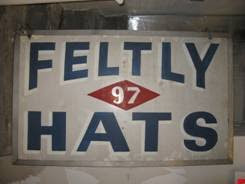 |
| Erik repairing shoes at his Lower East Side store. |
"You go freely to pray and wear a yarmulke without worrying," he says, comparing the US to his homeland. "It was the time of communism in Russia," and most religious practices were banned.
His faith is what brought him to the Lower East Side. When he first arrived in New York City, he learned to repair shoes with his brother-in-law on Fourteenth Street. He decided to open his shop further downtown because it was a predominately Jewish neighborhood at the time. He was able to speak Hebrew while he was learning English.
Erik has seen the Lower East Side change frequently and suddenly over the years. His Jewish community started moving to Queens and Long Island. Then there was a larger wave of Chinese immigrants. Lately, his customers have been mainly Americans and Europeans from the East Village, who he calls "the village people" with a slight smile. Despite all the changes, Erik still likes working in the neighborhood. "It's quiet," he says.
And Erik is certainly well known around here. In 2007, New York Magazine named him the best shoe repair shop in the Lower East Side. His award is proudly displayed on his door. He says he won because he's "fast, and I do a good job." How fast? The article says that Erik once did a reheeling job while a taxi idled on the sidewalk.
****
Back at the museum, Kathryn Lloyd, an educator who has led all of the Tenement Museum's building and neighborhood tours, also has a history deeply rooted in Eastern Europe and the Lower East Side, though hers begins with her great grandparents. Listen as she discusses how her family directly influenced her career as an educator and the way in which she approaches the hardships of immigration, past and present.Want to know more about Russian and other Eastern European immigrants on the Lower East Side? Get the details on The Moores: An Irish Family in America, in which the title family is compared to the Russian-Jewish Katz family, or the tour Kathryn says is closest to her own family's history - Piecing It Together - here.
- Article by Kiley Edgley and Joe Klarl










